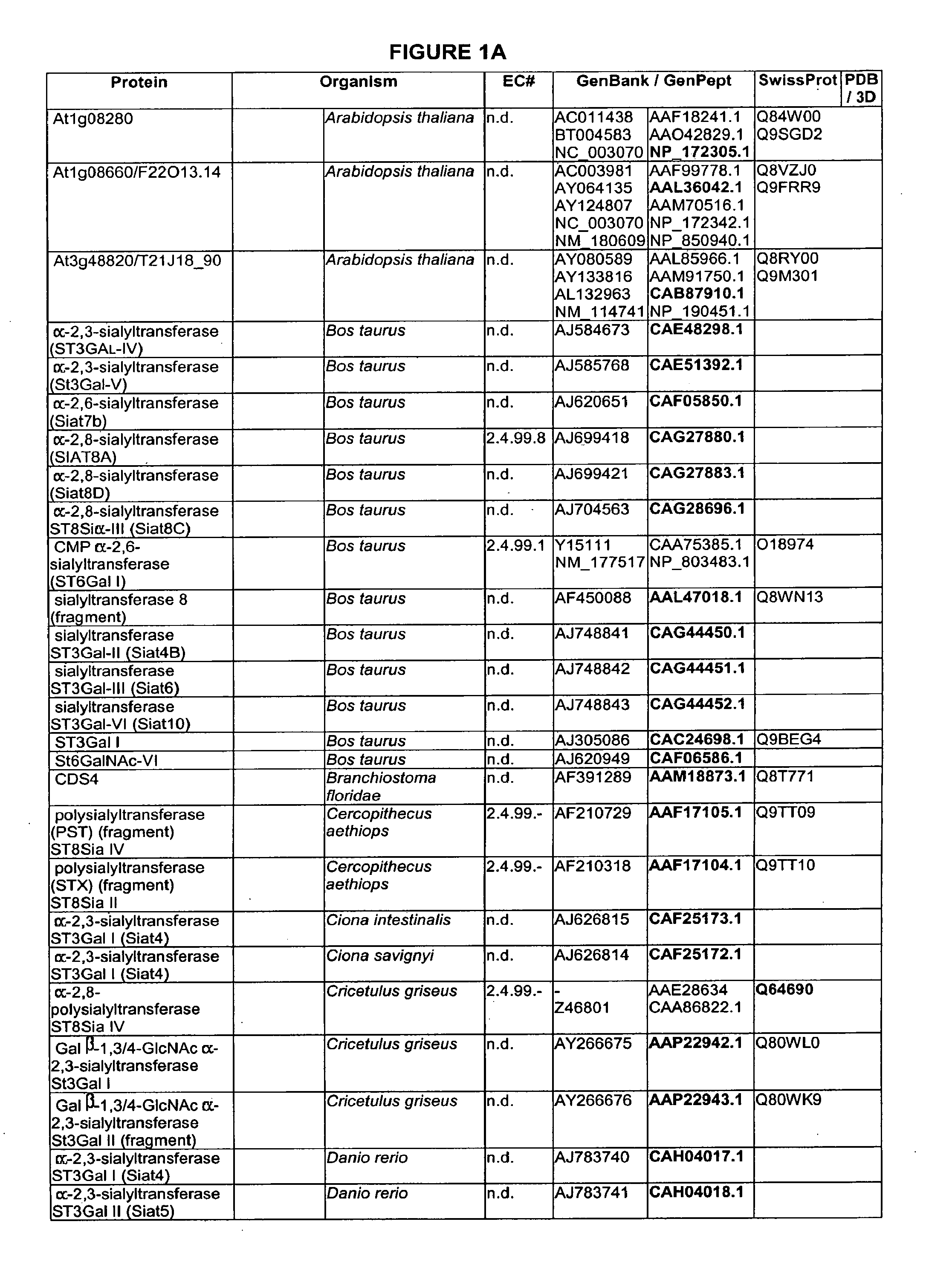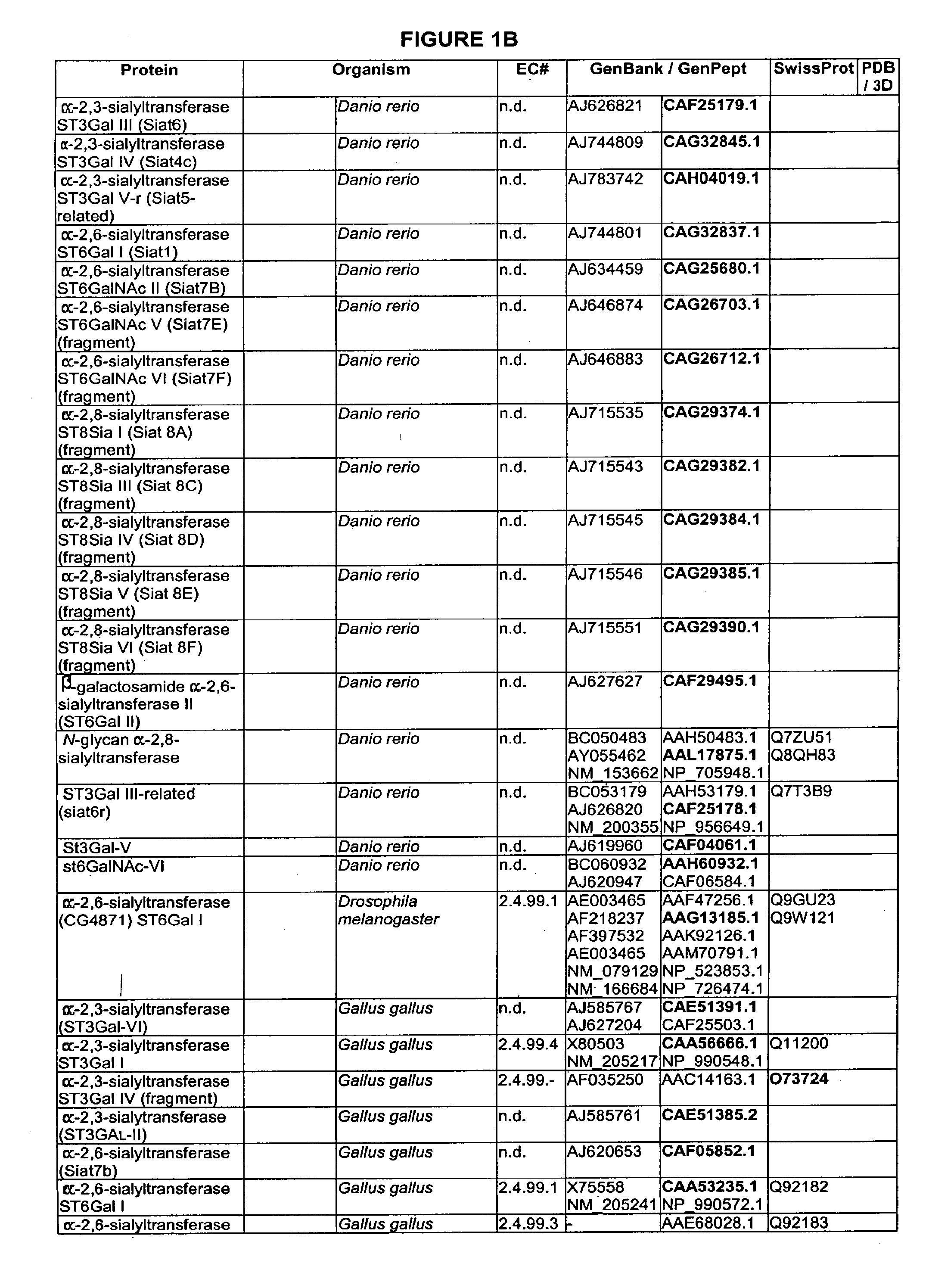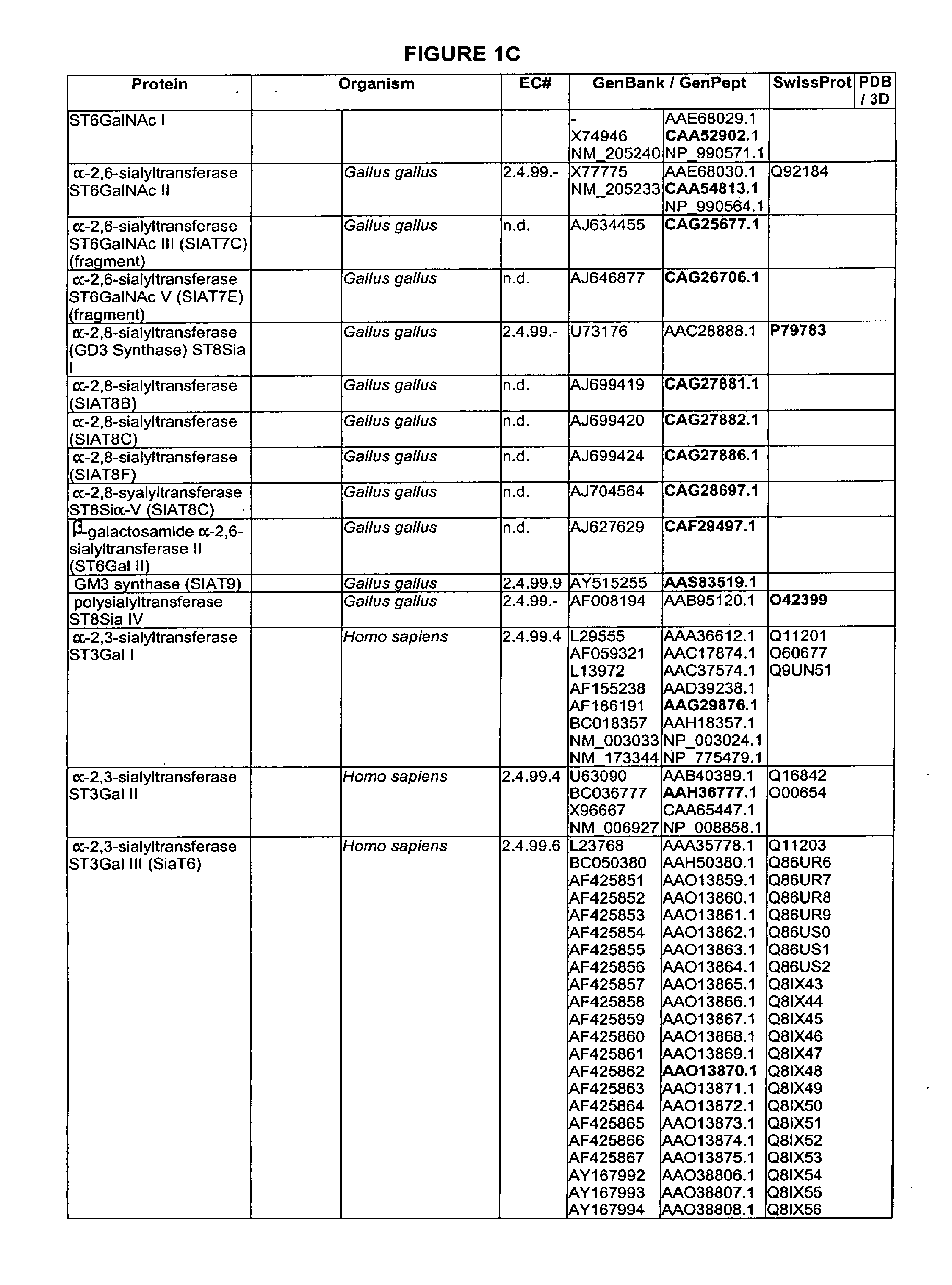Enzymatic modification of glycopeptides
a glycopeptide and enzyme technology, applied in the field of corrugates, can solve the problems of inactive peptides, unfavorable pharmacokinetics, antigenic and/or aggregated peptides, and hampered approaches, and achieves the effects of reducing potential exposure to adventitious agents, increasing homogeneity of products, and reducing the degree of homogeneity of glycosyl moiety
- Summary
- Abstract
- Description
- Claims
- Application Information
AI Technical Summary
Benefits of technology
Problems solved by technology
Method used
Image
Examples
Embodiment Construction
Abbreviations
Branched or un-branched PEG, poly(ethyleneglycol), including m-PEG, methoxy-poly(ethylene glycol); branched or unbranched PPG, poly(propyleneglycol), including m-PPG, methoxy-poly(propylene glycol); Fuc, fucosyl; Gal, galactosyl; GalNAc, N-acetylgalactosaminyl; Glc, glucosyl; GlcNAc, N-acetylglucosaminyl; Man, mannosyl; ManAc, mannosaminyl acetate; Sia, sialic acid; and NeuAc, N-acetylneuraminyl.
Definitions
Unless defined otherwise, all technical and scientific terms used herein generally have the same meaning as commonly understood by one of ordinary skill in the art to which this invention belongs. Generally, the nomenclature used herein and the laboratory procedures in cell culture, molecular genetics, organic chemistry and nucleic acid chemistry and hybridization are those well known and commonly employed in the art. Standard techniques are used for nucleic acid and peptide synthesis. The techniques and procedures are generally performed according to conventional met...
PUM
| Property | Measurement | Unit |
|---|---|---|
| molecular weight | aaaaa | aaaaa |
| molecular weight | aaaaa | aaaaa |
| molecular weight | aaaaa | aaaaa |
Abstract
Description
Claims
Application Information
 Login to View More
Login to View More - R&D
- Intellectual Property
- Life Sciences
- Materials
- Tech Scout
- Unparalleled Data Quality
- Higher Quality Content
- 60% Fewer Hallucinations
Browse by: Latest US Patents, China's latest patents, Technical Efficacy Thesaurus, Application Domain, Technology Topic, Popular Technical Reports.
© 2025 PatSnap. All rights reserved.Legal|Privacy policy|Modern Slavery Act Transparency Statement|Sitemap|About US| Contact US: help@patsnap.com



